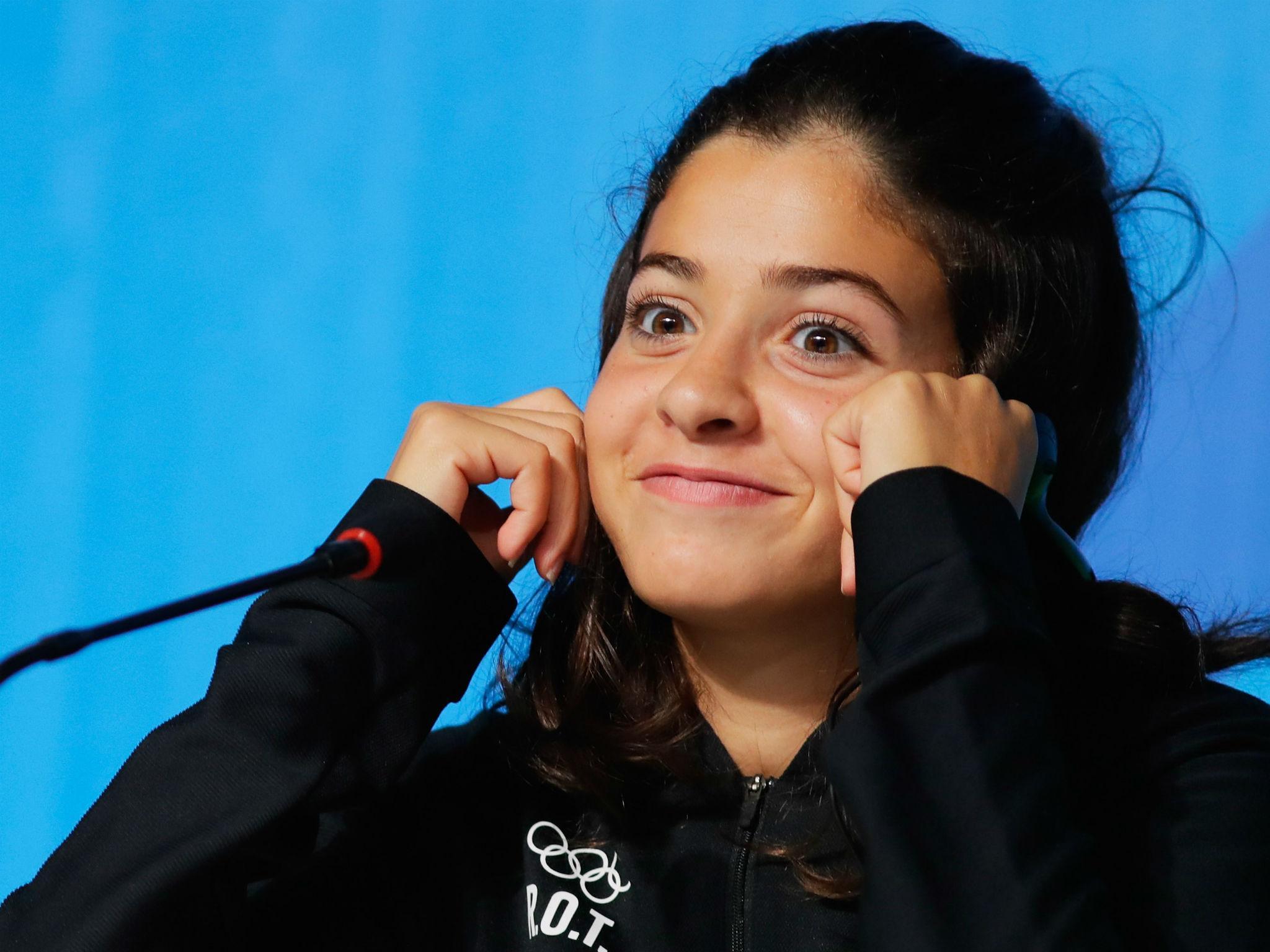Most refugees aren’t future Olympic athletes – it's a shame we can’t bring ourselves to care about them too
Whether we take teenagers crippled by PTSD and shrapnel wounds or eight-year-olds who could beat Andy Murray at singles should be immaterial. This is a humanitarian crisis, not a Britain’s Got Talent-style audition process


Steve Jobs was the child of a Syrian migrant: that fact made its way around the internet at lightning speed when the lifeless body of three-year-old Aylan Kurdi was found washed up on a beach in Turkey. Soon afterward, a Banksy mural appeared in the infamous Calais Jungle camp that depicted Jobs as a refugee newly arrived from Syria.
Six months later, news reports about the 2016 Olympics broke the story of the incredible achievements of the Refugee Team in Rio – achievements such as those of Syrian swimmer Yusra Mardini, who almost died swimming for miles in the Mediterranean sea while pushing an overloaded boat full of fellow refugees when it began to sink, and South Sudanese competitors Rose Nathike Lokonyen and Yiech Pur Biel, who trained barefoot because they didn’t have any shoes.
It’s true that a potential Steve Jobs or the next Usain Bolt could be languishing away in a refugee camp right now, or about to board an ill-fated boat across the Mediterranean in a desperate attempt to escape an unbearable existence. It’s true that the world could be missing out on brilliant technological innovation, or impressive feats of athletic endurance.
Stories such as the death of Samia Omar, a sprinter who represented her home country of Somalia in the 2008 Beijing Olympics and drowned while trying to cross the Mediterranean Sea in 2012, underline how tragic such losses can be for humanity as a whole. Omar and many others like her have been denied fantastic careers and the chance to contribute to the life of the international community.
But there’s one big problem with this line of thinking. When the Olympics ends, the 2016 refugee team disbands, when people forget the standing ovation in Rio and the heart-warming moment when refugees from a number of countries brandished the Olympian flag together, millions of people will still be making dangerous attempts to reach Europe by land and sea. Still others will be saving up to pay human traffickers to help them and their families escape war-torn countries and persecution. And hardly any of them will be potential Olympic athletes or “the new Steve Jobs”.
Most refugees have difficult and disturbing stories to tell. Many of them are severely traumatised; some will have lasting mental health problems as a result of their experiences. They will require financial, medical and emotional support to get back on their feet. Most people who live through adversity don’t come out the other side winning gold medals for their countries. Most people don’t end up winning gold medals for their country, full stop.
Refugees are not here to provide us with uplifting anecdotes, top-class entertainment and stories that are easily packaged up into self-congratulatory paragraphs about the transformative power of western opportunity. They shouldn’t have to be superhuman to deserve our compassion.
Whether we take teenagers crippled by PTSD and injured by shrapnel, or eight-year-olds who could beat Andy Murray at singles, should be immaterial. This is a humanitarian crisis, not a Britain’s Got Talent-style audition process.
While the stories of people like Yusra Mardini are incredible, they haven’t translated into widespread concern for all refugees. The UN’s humanitarian appeal for Syrian refugees, which just started in 2015, ended just 61 per cent funded. Wealthy countries including Saudi Arabia, the United Arab Emirates, Qatar, Russia, Japan, Singapore and South Korea have offered zero resettlement places to refugees fleeing the Syrian conflict. Meanwhile, Lebanon and Jordan have taken so many people that Syrian refugees now make up 20 per cent and 10 per cent of their populations respectively, while Germany has taken more than half of the entire EU total.
When you’re bombarded with statistics like that, it’s easy to suffer empathy fatigue. The images come in so thick and fast that we’ve become desensitised.
Yes, we’ve seen the chaotic scenes in Lesbos, the pictures of boats full of soaked and panicking people splashed across front pages, we’ve nodded our heads at the startling numbers. But all we’re talking about now is the sports star who pushed a dinghy for three hours in freezing water while escaping the Syrian conflict. We’ve stopped mentioning her fellow citizens still in Syria, many of whom face daily bombardment, and those still trying to escape.
We seem to have forgotten that the refugee crisis is everybody’s problem. If we want to pat ourselves heartily on the back about Rose Nathike Lokonyen’s success, to claim her for one of our own, then we have to claim the refugee crisis for our own as well.
And if the Olympic Games represent countries coming together for a wider cause, if gymnasts from North and South Korea can pose for a selfie together, then surely we can harness some of that spirit in order to acknowledge the most important cause in the world right now.
People are dying – everyday people, most of whom would be as likely to win the 100-metre sprint as I am. That, without any fantastic tale attached, should matter.
Join our commenting forum
Join thought-provoking conversations, follow other Independent readers and see their replies
Comments